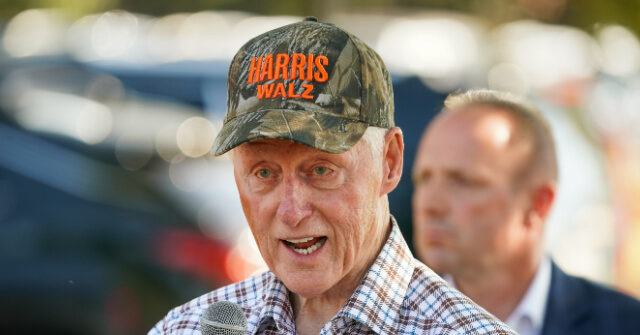In a recent rally for Vice President Kamala Harris in Muskegon Heights, Michigan, former President Bill Clinton stirred controversy by stating that the economy was better during Donald Trump’s presidency. Though his comments led to discontent among the audience, with groans heard in response, Clinton maintained that voters should still support Harris, emphasizing that it was inappropriate to vote solely based on economic conditions. Clinton, who served as the 42nd president of the United States, asserted his right to express his opinion on the political landscape, recalling his own record and the economic achievements during his administration.
Clinton’s remarks come at a time when the Biden-Harris administration faces scrutiny over its economic policies and overall effectiveness. Despite his recognition of the economic improvements under Trump, Clinton’s insistence on supporting Harris highlights the complexities of political loyalty and strategy within the Democratic Party. His statement could be seen as an attempt to bridge the gap between recognizing economic realities and promoting party unity, reflecting the challenges facing Democrats as they approach upcoming elections.
Additionally, Clinton has faced criticism for comments linked to a high-profile crime case involving Laken Riley, a 22-year-old nursing student allegedly killed by an illegal migrant. He suggested that Riley’s death might have been prevented if the Biden-Harris administration had better vetted the suspect. This statement further amplifies concerns regarding border security and immigration policy tied to Harris, making it evident that Clinton’s comments could be interpreted as indirect criticism of her role in the administration’s policies.
The implications of Clinton’s remarks extend beyond a momentary gaffe, as they tap into broader discussions surrounding border enforcement and economic management. Since taking office, the Biden-Harris administration has rolled back several Trump-era immigration policies, initiating significant changes that have been met with mixed reactions from the public. This political environment makes Clinton’s comments particularly sensitive, as they touch on the fundamental issues that many voters are grappling with ahead of the 2024 elections.
As Democrats strategize for future campaigns, Clinton’s mixed messages pose challenges for Vice President Harris and her allies. While Clinton’s historical perspective can lend credibility to his observations, it also places pressure on Harris to address economic concerns and public safety issues effectively. This dual pressure from the party’s elders can create internal tensions as the party tries to align its message, particularly in a climate increasingly focused on accountability for the administration’s policies.
Ultimately, Clinton’s observations reflect not only personal opinion but also a growing concern within the Democratic Party about maintaining voter support amidst complex economic challenges and sensitive social issues. His comments serve as a reminder of the delicate balance that political leaders must achieve—acknowledging past achievements while advocating for their current candidates and policies. As the political landscape continues to evolve leading up to the elections, the importance of these discussions will likely become central to the narrative that shapes voter sentiment and party alignment.

